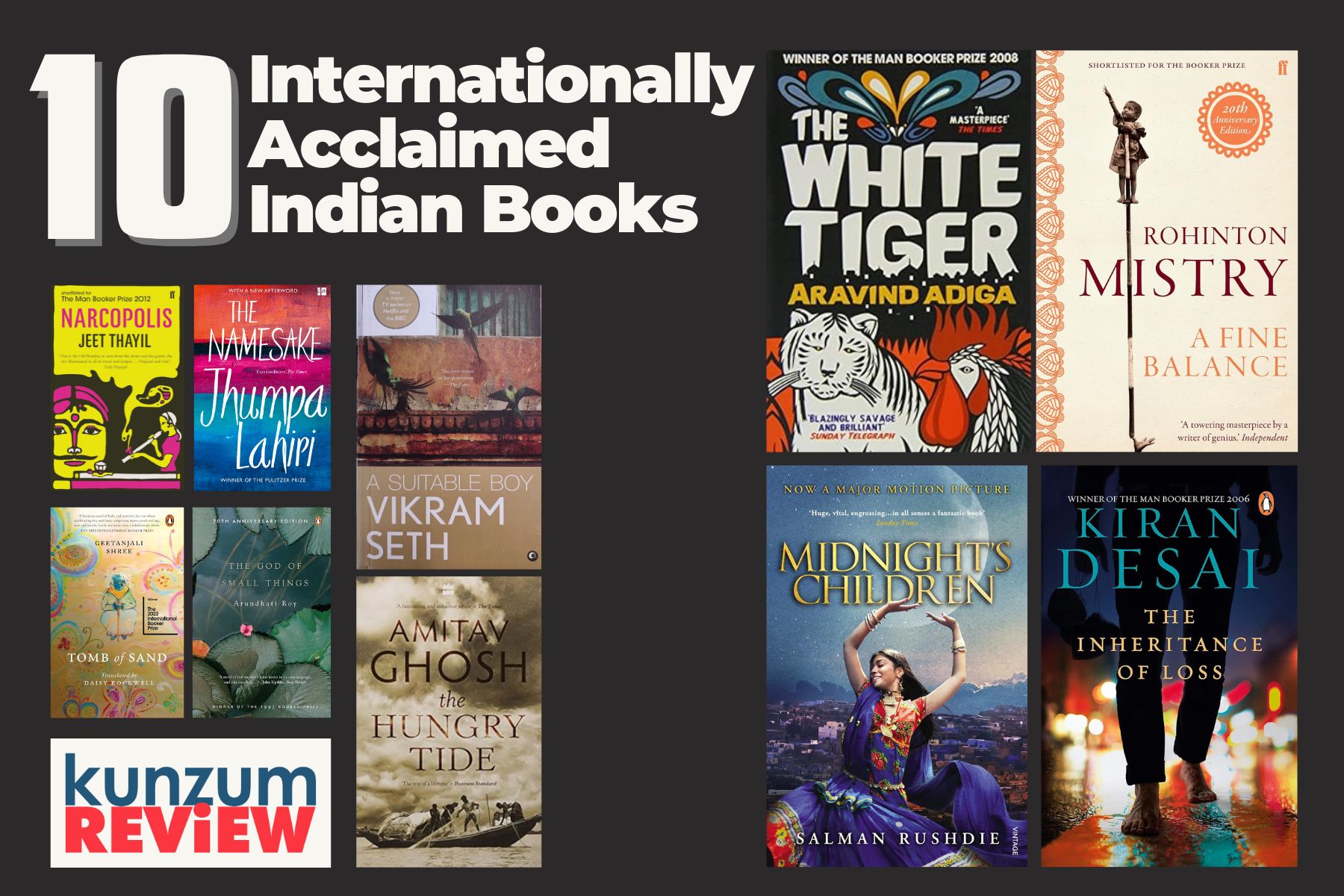
India’s long and distinguished literary history goes back to 1500 BCE when the epic poems of the Indian subcontinent were first recorded in written form. Since then, India has produced several poets and writers who have produced remarkable works of fiction and gained critical acclaim both in India and abroad. Here are 10 internationally acclaimed Indian novels that shed light on the diverse, distinct facets of the Indian life:
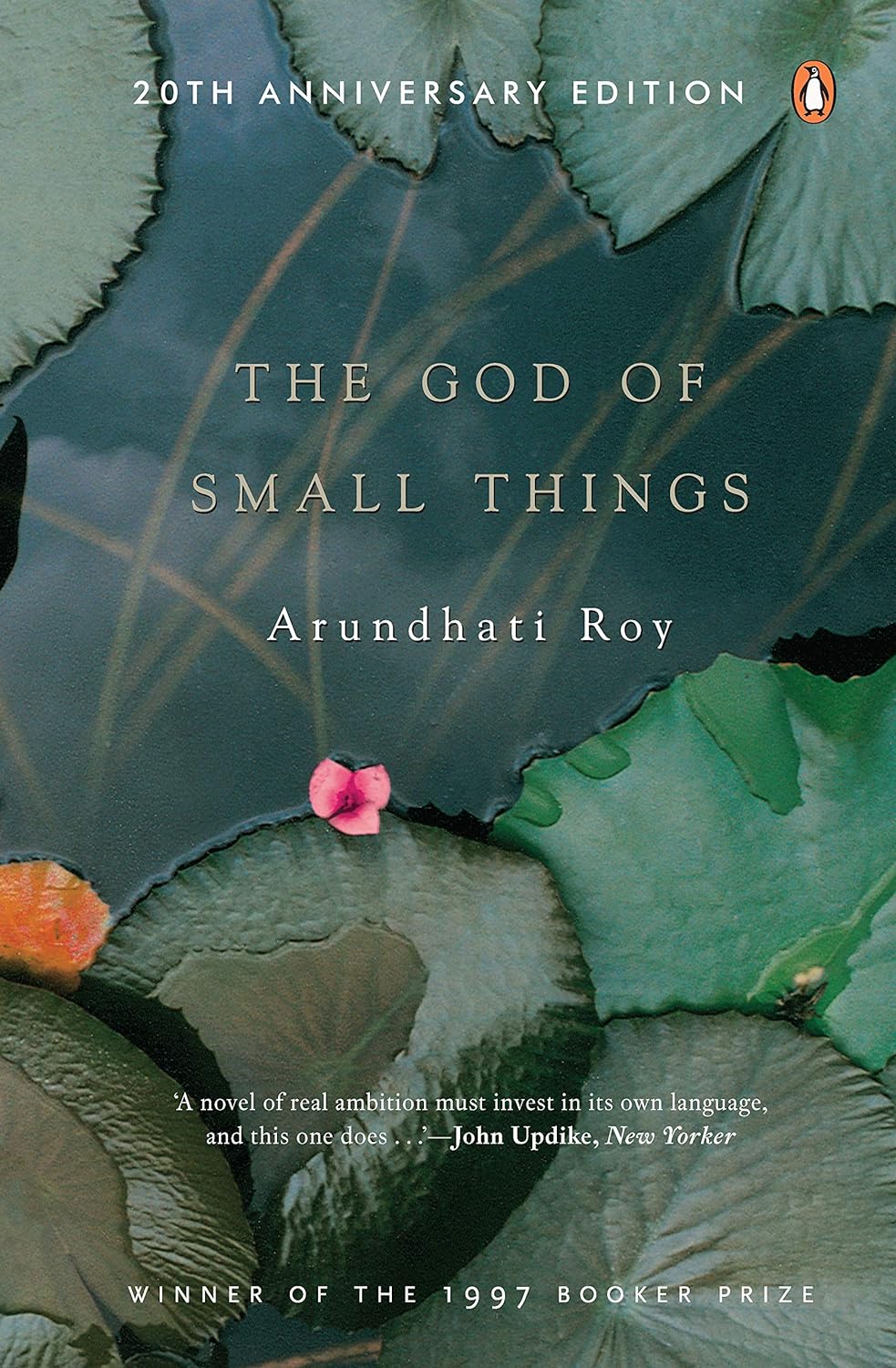
The God of Small Things by Arundhati Roy
Arundhati Roy’s 1997 Booker Prize-winning debut novel The God of Small Things is about fraternal twins Estha and Rahel whose lives are torn apart by the pervasive caste and class politics of 1960s Kerala. The novel examines how small, seemingly insignificant events and experiences can produce a ripple effect across time and shape people in deeply significant ways. The novel explores themes of love and sexuality, isolation, the family institution, caste and class politics, and rigid social norms in post-colonial Indian society.
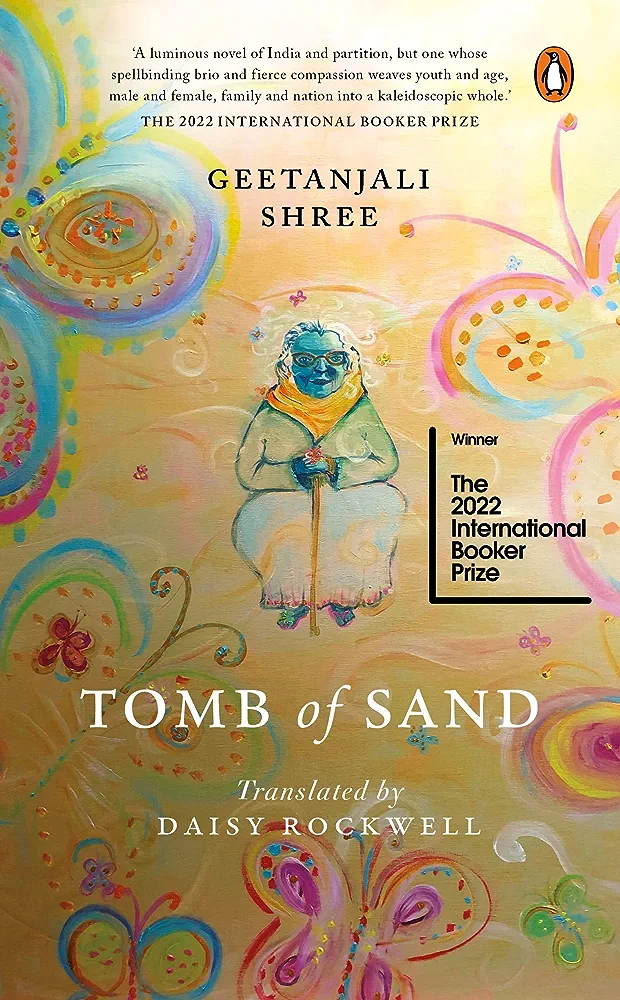
Tomb of Sand by Geetanjali Shree
Geetanjali Shree’s sprawling 2018 novel Tomb of Sand (Hindi: Ret Samadhi) traces the transformative journey of 80-year-old Ma, who slips into severe depression after the death of her husband and decides to travel to Pakistan against the wishes of her family — simultaneously confronting the unresolved trauma of her teenage experiences of Partition, and re-evaluating what it means to be a woman. It was translated into English by Daisy Rockwell in 2021, and became the first novel translated from an Indian language to win the International Booker Prize in 2022.

A Suitable Boy by Vikram Seth
Vikram Seth’s 1993 magnum opus ‘A Suitable Boy’ is set in newly independent post-partition India and follows Mrs Rupa Mehra’s search for ‘a suitable boy’ for her younger daughter, the 19-year-old Lata. The novel takes place in the fictional town of Brahmpur, and real Indian cities like Calcutta, Delhi, Lucknow, and Patna and touches upon pertinent political issues of the post-independence era such as communal tension, land reforms, abolition of the Zamindari system, class and caste politics, and changing family relations and dynamics in the lead up to the 1952 national general elections. The novel was adapted into a six-part BBC One series of the same name written by Andrew Davies and directed by Mira Nair in 2020.
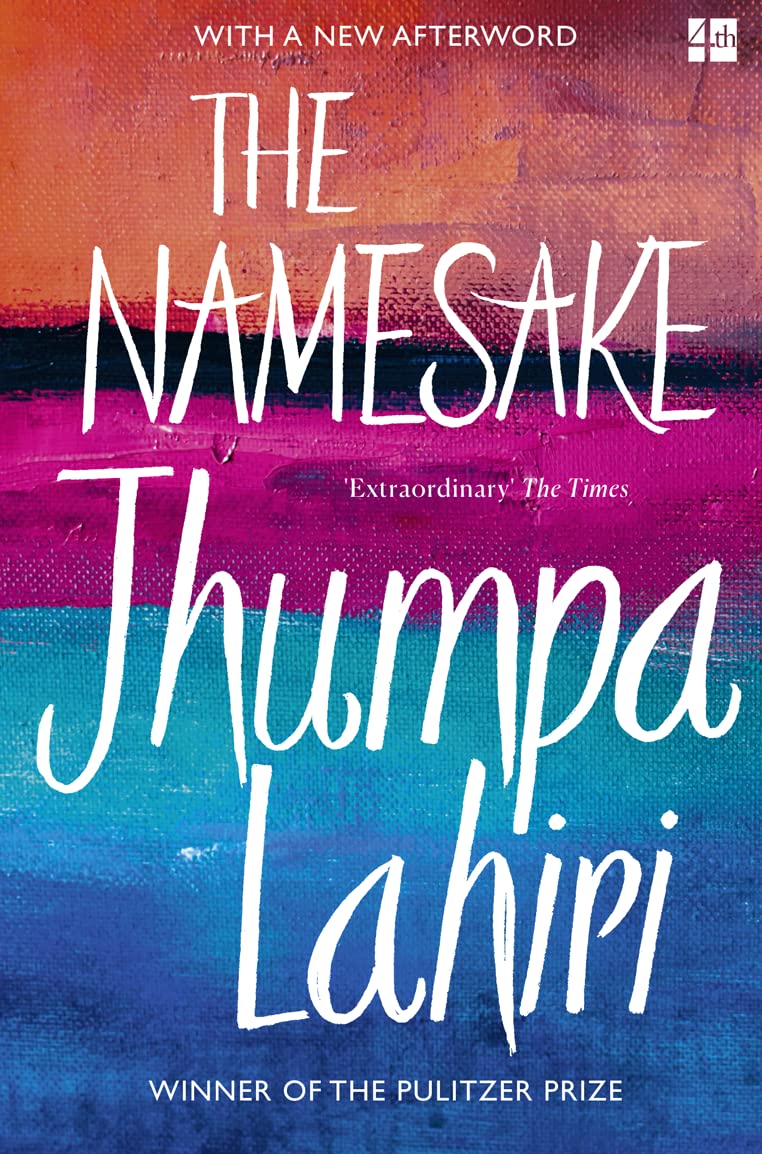
The Namesake by Jhumpa Lahiri
Jhumpa Lahiri’s first novel The Namesake explores many of the same themes as her Pulitzer Prize-winning short story collection Interpreter of Maladies and revolves around the lives of Ashok and Ashima Ganguly and their son Gogol, named after Nikolai Gogol, the Russian novelist, short story writer, and playwright of Ukrainian origin. The novel unfolds across events that take place in Calcutta, Boston, and New York, and examines the nuances of coming of age in-between two conflicting cultures with distinct religious, social, and ideological differences. A film adaptation, also titled ‘The Namesake’, directed by Mira Nair and written by Sooni Taraporevala, was released in 2006 to critical acclaim.

A Fine Balance by Rohinton Mistry
Indian-Canadian author Rohinton Mistry’s 1995 novel A Fine Balance is set in an unspecified Indian town during the turbulent years leading up to The Emergency and follows the lives of Dina Dalal, Ishvar Darji and his nephew Omprakash Darji, and the young Kashmiri student Maneck Kohlah. The novel takes a critical look at the emergency years, and the social, political, and economic atmosphere of the time. The novel was shortlisted for the Booker Prize in 1996 and won the Giller Prize in 1995.
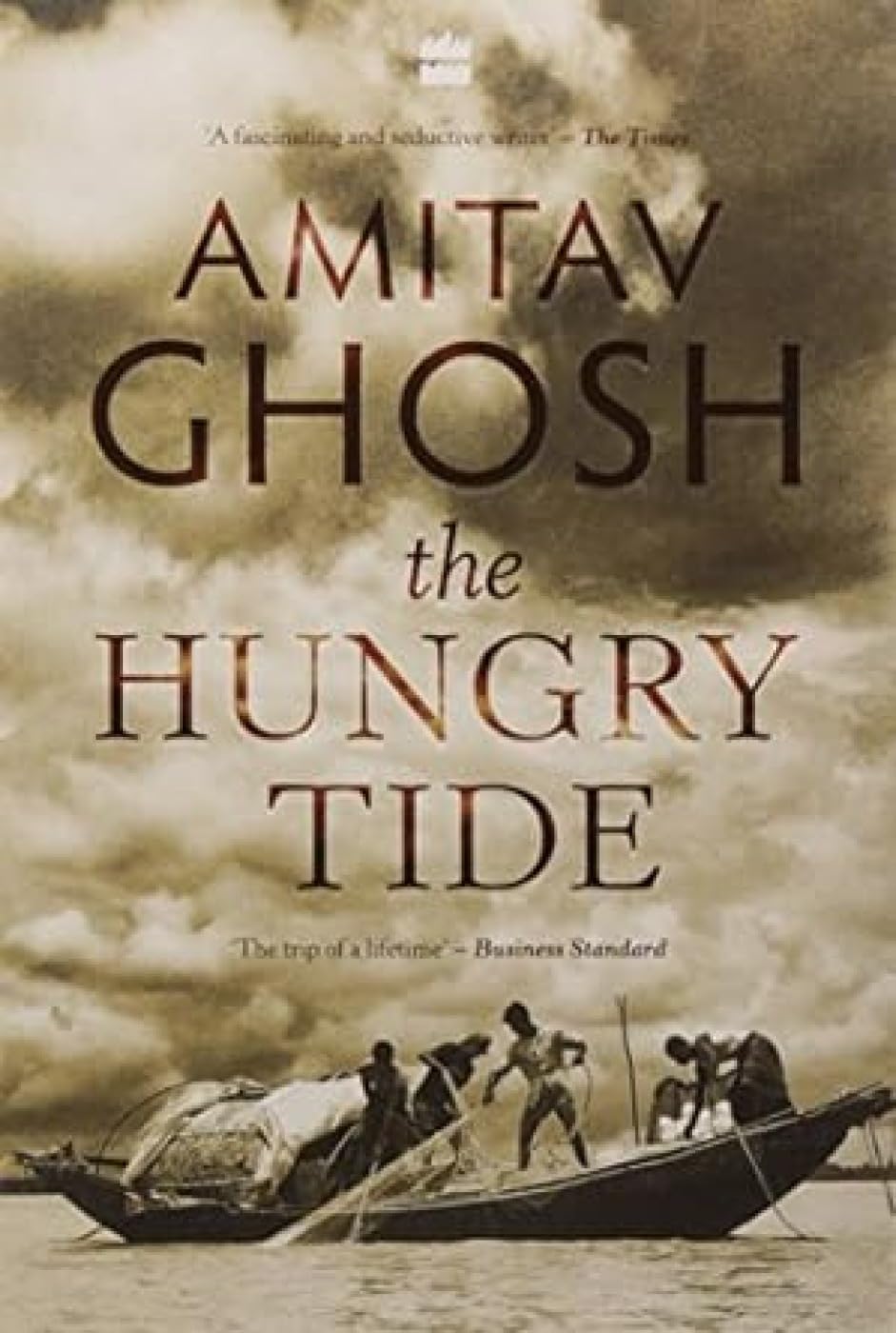
The Hungry Tide by Amitav Ghosh
Amitav Ghosh’s The Hungry Tide was perhaps the first modern Indian novel that could be categorized as climate fiction. Set in the estuarine islands of Sundarbans, The Hungry Tide follows Piyali “Piya” Roy, a young Indian-American marine biologist of Bengali descent, whose search for the rare gangetic dolphin Orcaella brevirostris leads her deep into Sundarbans’ labyrinthine mangroves. The Morichjhanpi massacre of 1978-79, when the Government of West Bengal forcibly evicted thousands of Bangladeshi refugees who had settled on the Morichjhanpi island, forms part of the novel’s background, and Ghosh masterfully uses the Sundarbans’ politically and ecologically sensitive landscape to examine what happens when humanism and environmentalism come into conflict. The novel won the 2004 Hutch Crossword Book Award for Fiction.
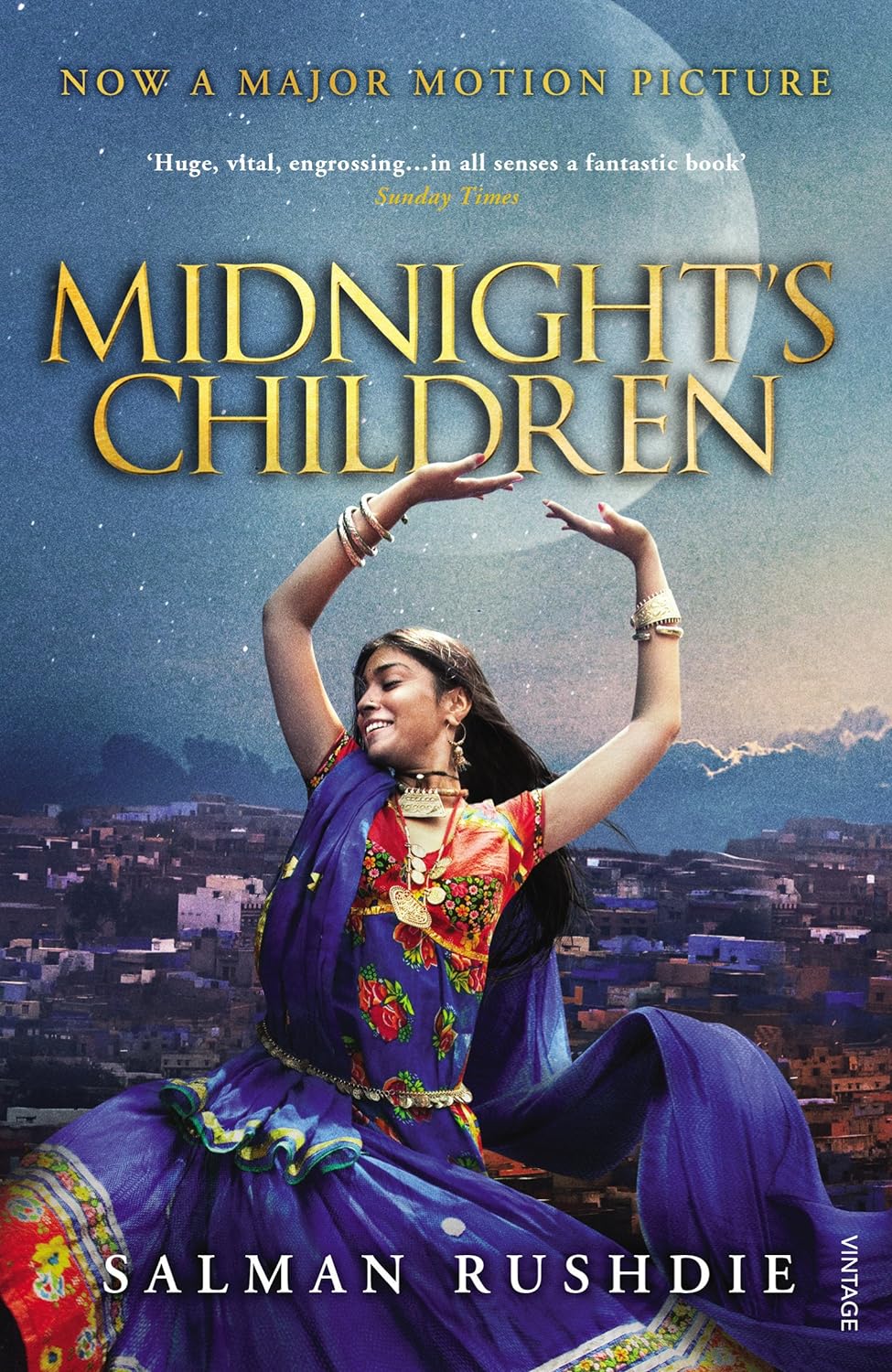
Midnight’s Children by Salman Rushdie
Set against the events during and after the partition and independence of India, Salman Rushdie’s 1981 novel ‘Midnight’s Children’ is a postcolonial, postmodern, and magical realist historical fiction about children born with special abilities at midnight on the day of India’s independence. The novel is narrated by Saleem Sinai, one such midnight’s child born with telepathic powers at the exact moment India became an independent nation, and unfolds across the Indian subcontinent — from Kashmir to Agra, and then Bombay, Lahore, and finally Dhaka. Midnight’s Children ushered in a new wave of Indian writing in English, so much so that the decades after its publication are often called the “post-Rushdie” years. Midnight’s Children would go on to win the 1981 Booker, the 1992 Booker of Bookers, and the 2008 Best of the Bookers prizes and become one of the most celebrated and critically acclaimed works of Indian literary fiction.

The Inheritance of Loss by Kiran Desai
Kiran Desai’s 2006 Booker Prize-winning novel The Inheritance of Loss follows the parallel lives of Biju, an illegal alien in the United States of America, and Sai, an orphan living with her maternal grandfather in Kalimpong, a hilltown in India. Desai alternates between these two narratives to examine the internal conflicts within India and tensions between the past and the present to make broader observations about colonialism, post-colonialism, migration, and living in-between conflicting cultures and times. The novel also won the National Book Critics Circle Award for fiction in 2007.
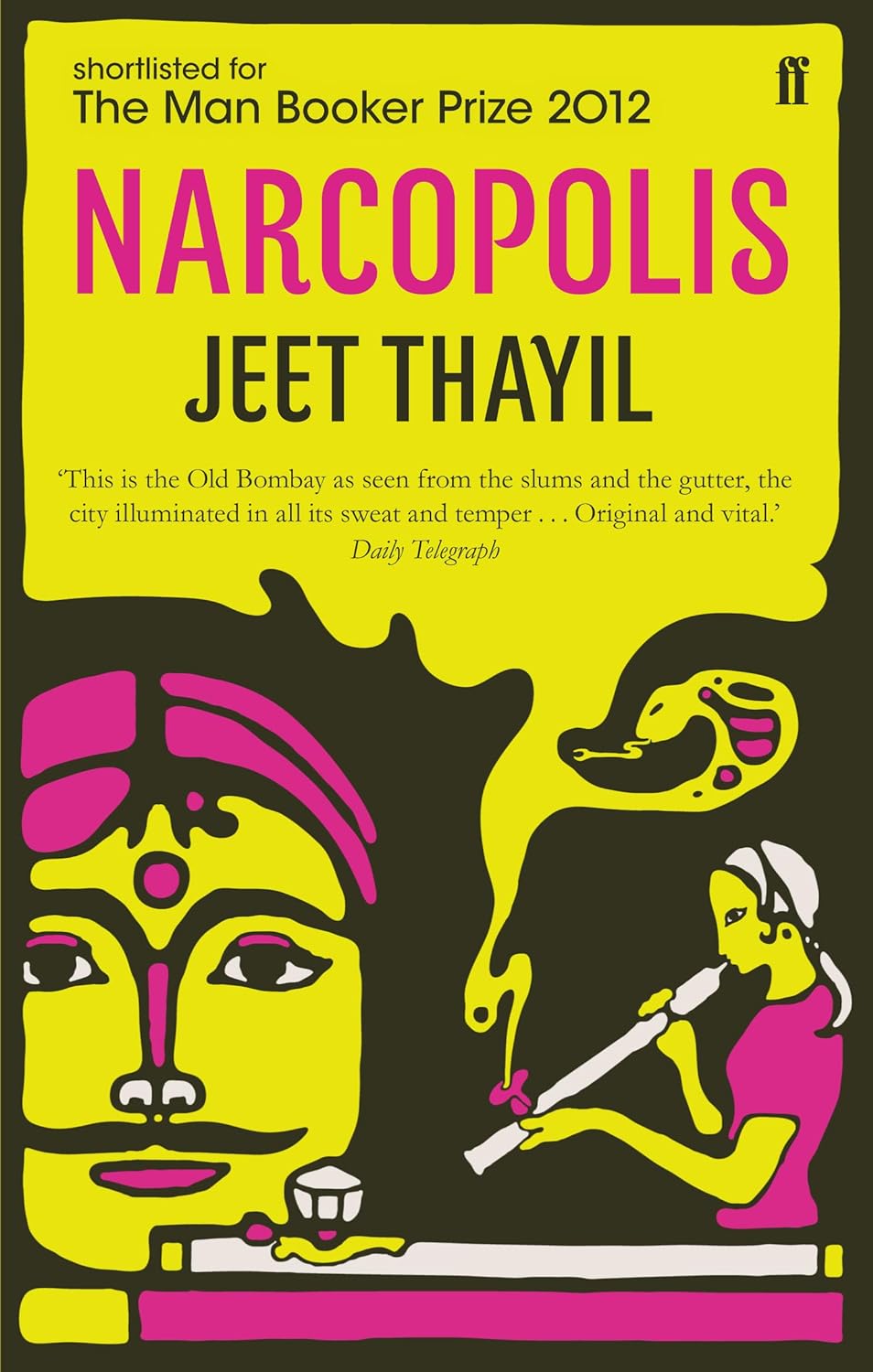
Narcopolis by Jeet Thayil
Set in the opium houses of 1970s Old Bombay, poet and novelist Jeet Thayil’s debut novel Narcopolis draws on Thayil’s lived experience as a drug addict and explores the dark underbelly of Old Bombay, “a city of intoxication, where the substances on offer were drugs and alcohol, of course, but also god, glamour, power, money, and sex.” The novel was shortlisted for the 2012 Man Booker Prize.
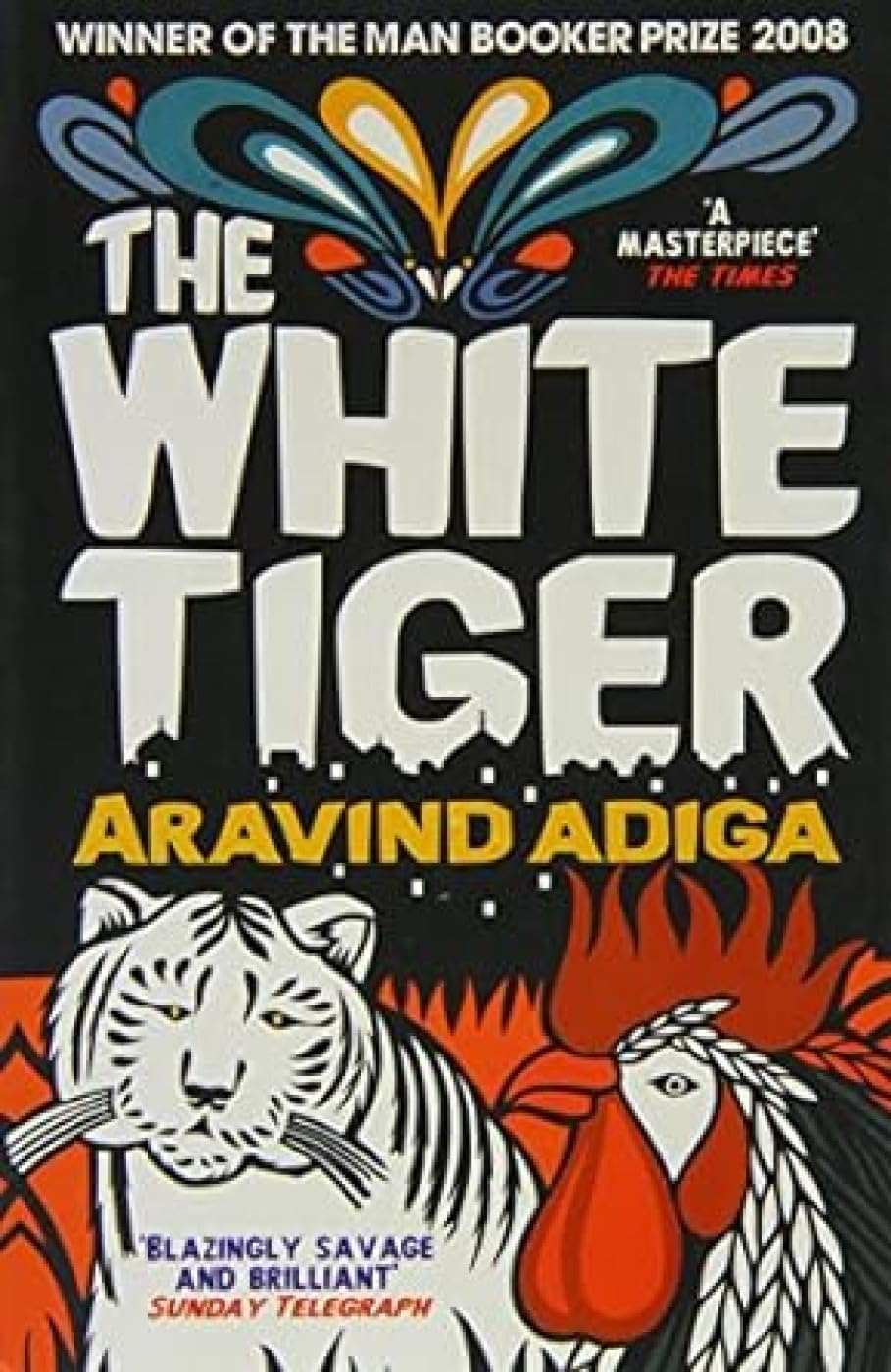
The White Tiger by Aravind Adiga
Aravind Adiga’s 2008 novel The White Tiger follows the life of Balram Halwai from his birth in a rural village in Bihar’s Gaya district to his life in New Delhi, and later in Bangalore. Written in the form of a letter Balram writes to the Chinese Premier Wen Jiabao over seven consecutive nights, the novel explores how Balram, the son of a rickshaw puller, escaped a life of servitude to become a successful businessman. Adiga uses New Delhi and Bangalore as centers of India’s increasing economic and political power in the age of globalization, and uses the close proximity of the rich and poor in these cities to paint a stark image of Hindu religiosity, casteism, classism, corruption, capitalism, individualism, and the effects of globalization in modern Indian society. Adiga won the 2008 Booker Prize for The White Tiger.

